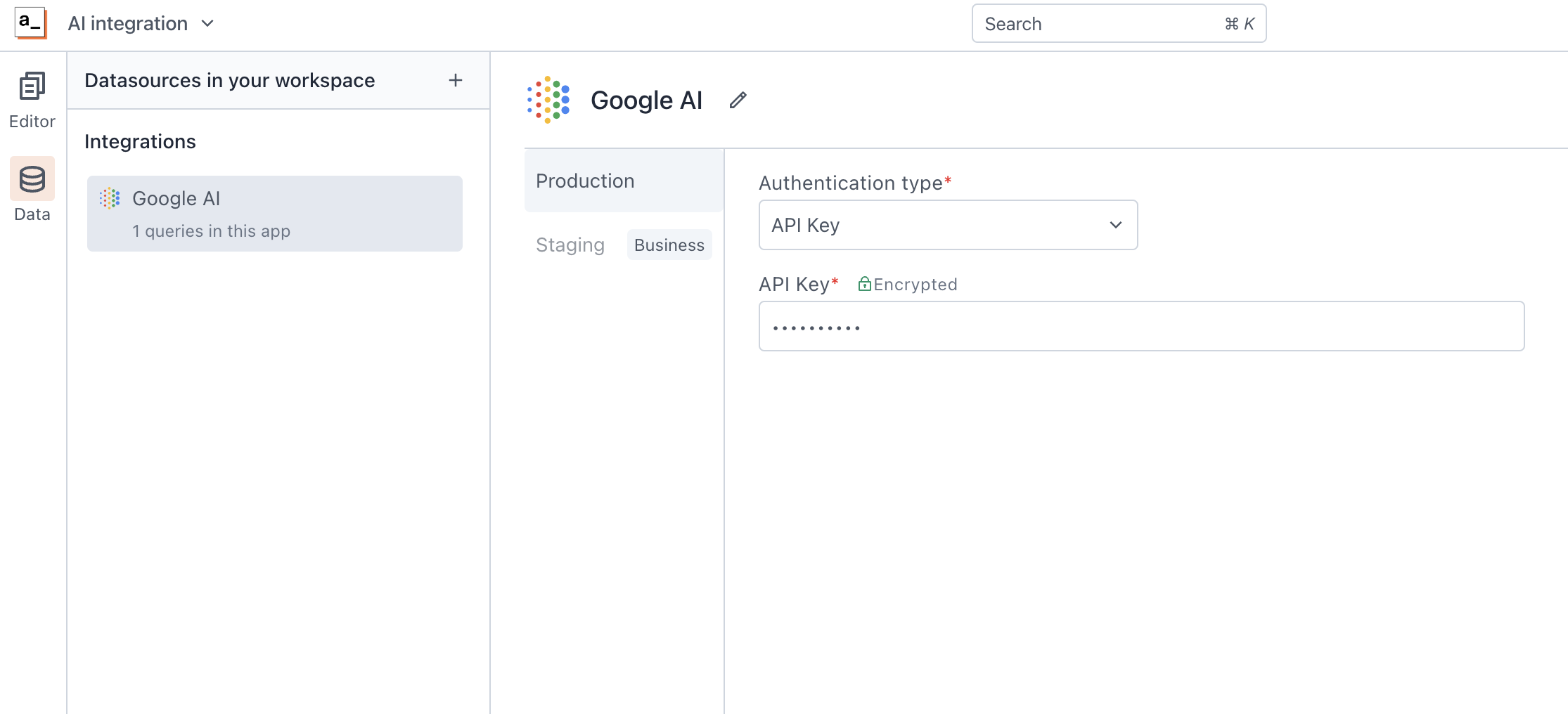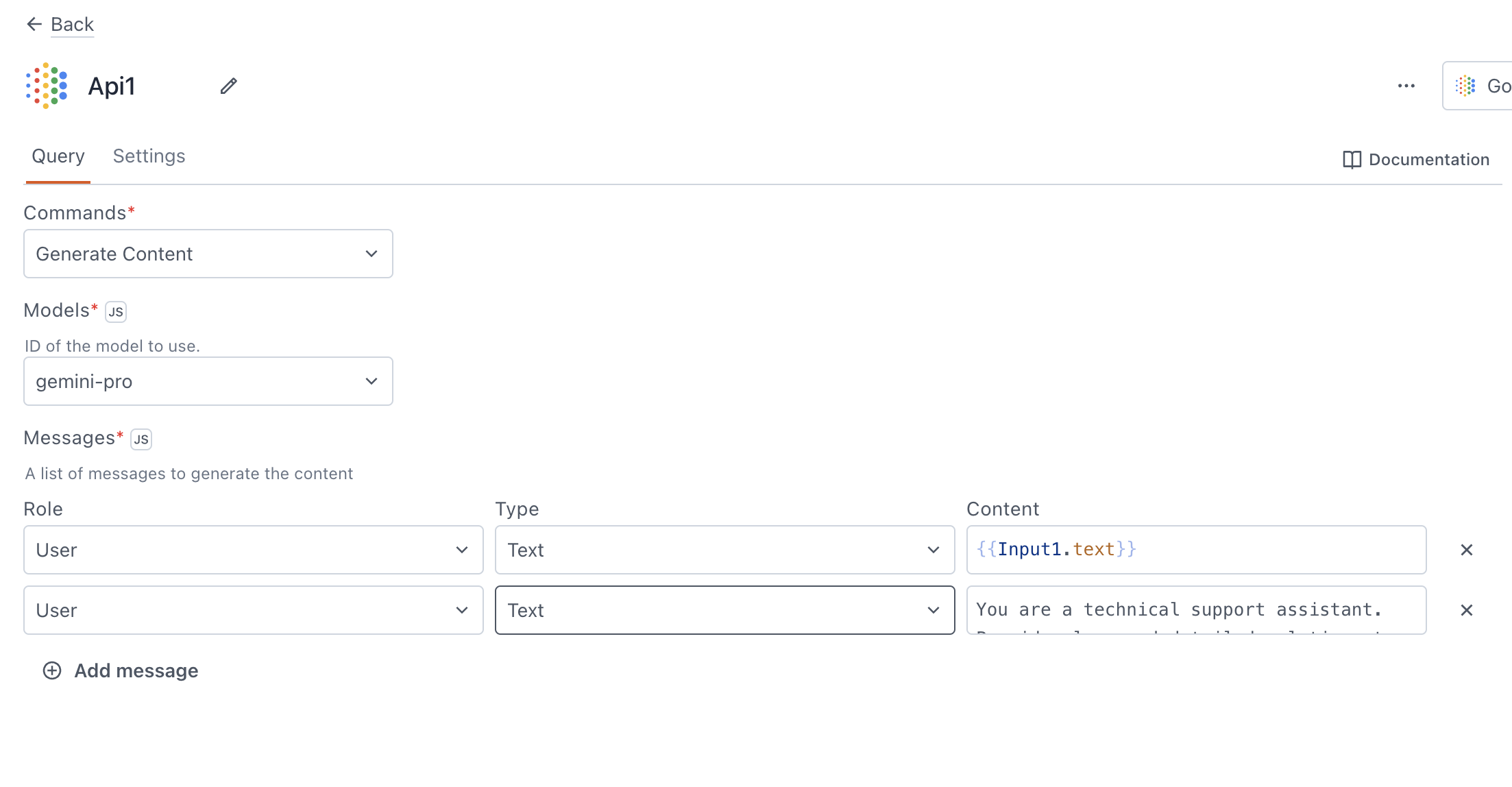Google AI
This page provides information for connecting Appsmith to Google AI, which allows you to configure applications with advanced AI features, such as chat completion.
Appsmith is committed to providing safe and responsible access to AI capabilities. Your prompts, outputs, embeddings, and data are not shared with other users and are never utilized to fine-tune models. Learn more about Google's privacy policy here.
Connect Google AI

Connection parameters
The following section is a reference guide that provides a complete description of all the parameters to connect to a Google AI datasource.
Authentication type
Authentication Type refers to the method used to verify the identity of users or systems interacting with the API.
Options:
- API Key: It is a form of authentication where a unique code is provided for identification and authorization purposes.
API Key
The Google AI uses API keys for authentication. You can create a key from Google AI Studio.
Query Google AI
The following section is a reference guide that provides a description of the available commands with their parameters to create Google AI queries.
Generate Content
The Generate Content command generates human-like text based on input prompts. The following section lists all the available parameters:

Models
It refers to the pre-trained language models provided by Google AI. You can select from the available list of models, including options like gemini-pro.
Messages
Messages serve as the input interface between the user and the model. You can create multiple messages as needed to facilitate a dynamic conversation.
-
Role: This parameter determines the participant's role in the conversation. Currently, only
Useris available. -
Type: Specifies the format of the input and response. Currently, only
Textis available. -
Content: Input provided by the user to instruct or guide the model. For example, if you are using an Input widget to enter the prompt, you can use
{{Input1.text}}.
For more information refer to the Google AI documentation.
See Also
- Display and Lookup Data in List - Learn how to display query results in a List and enable users to look up data efficiently.
- Setup Server-side Pagination on List - Guide on implementing server-side pagination in Lists for large datasets.
- Search and Filter Table Data - Guide on adding search and filter functionality to Tables for better data navigation.
- Edit List Data - Step-by-step guide on how to edit and update data in a List.